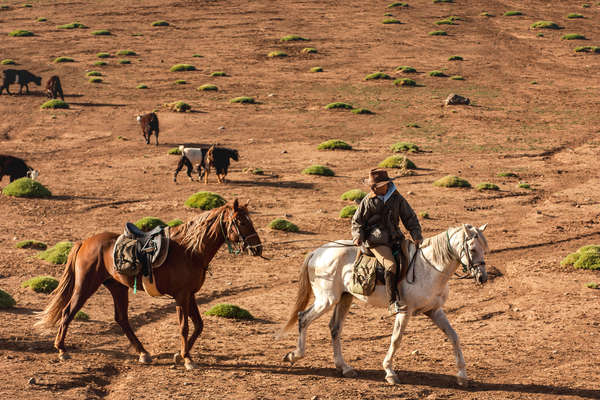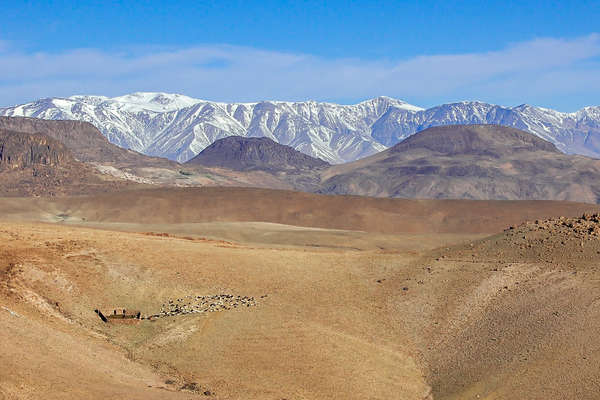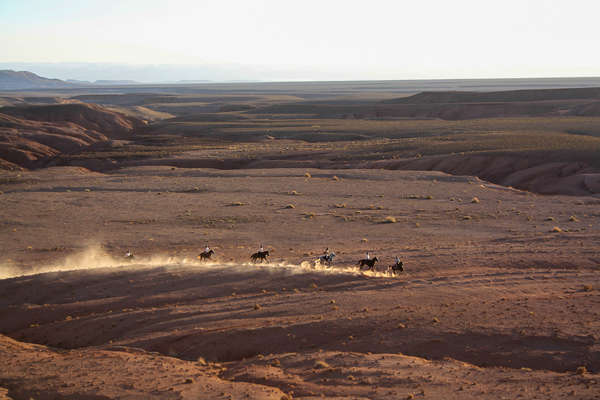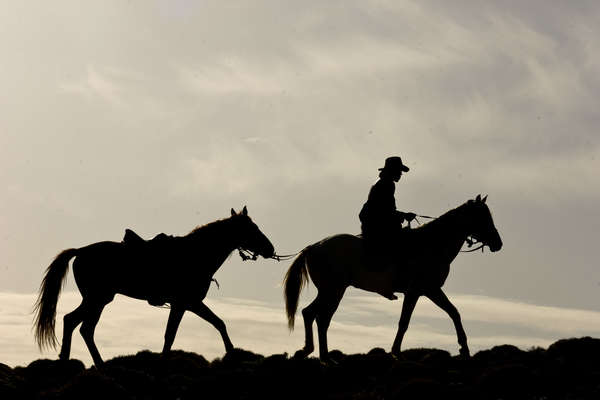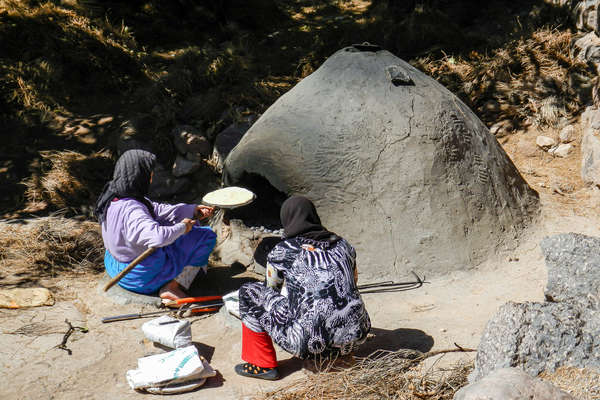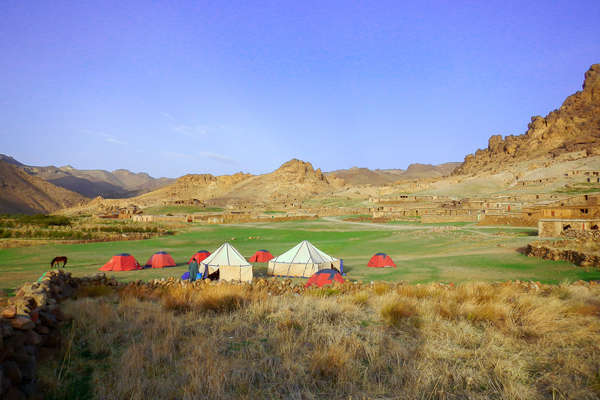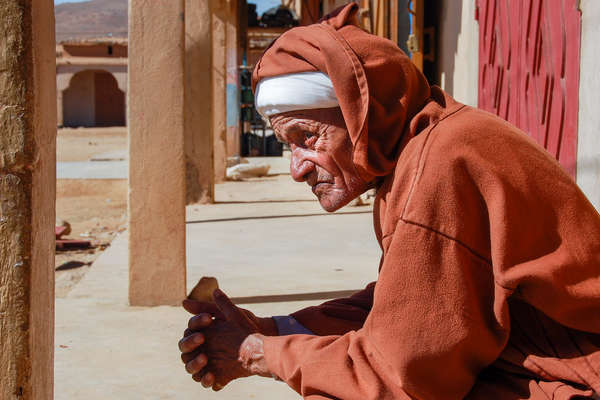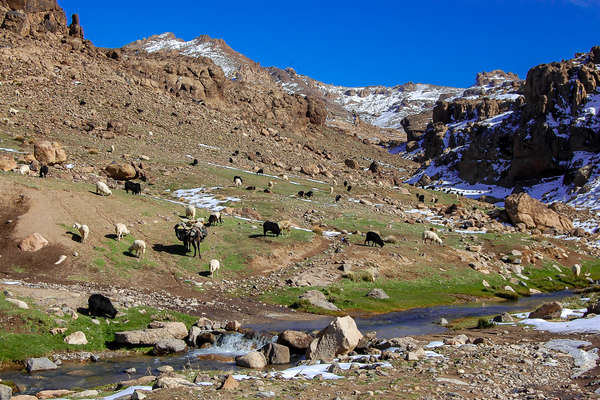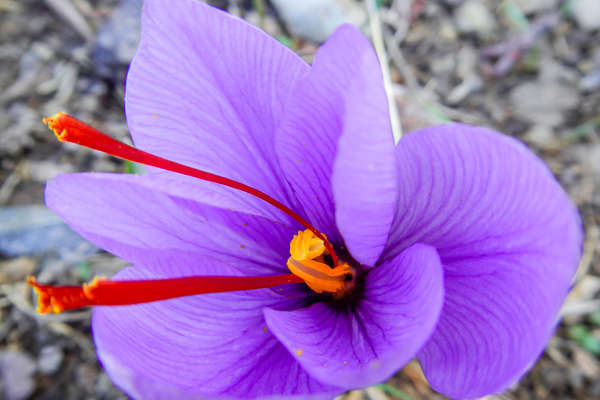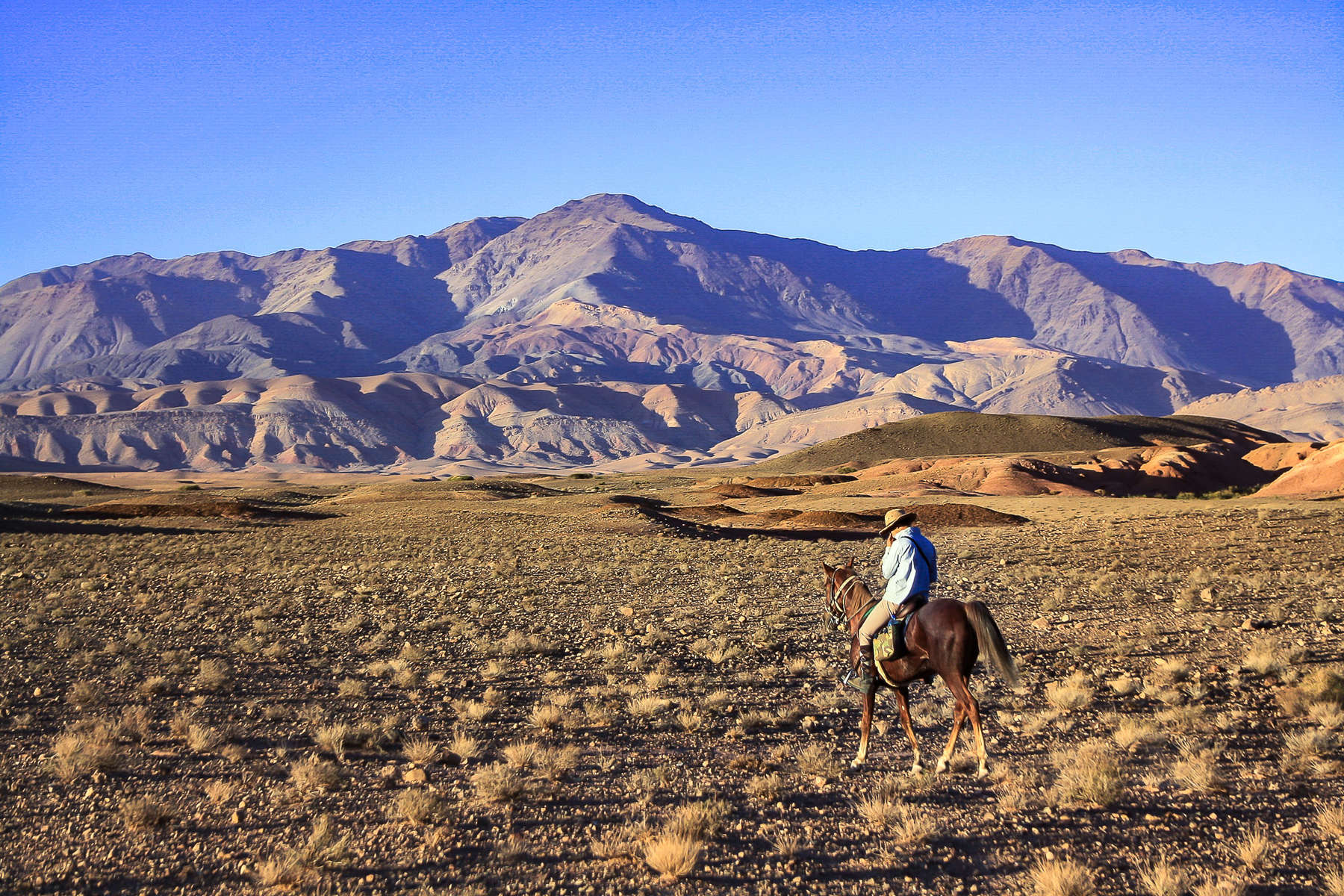
From the horse’s mouth
Itinerary
Highlights
- Siroua landscape : volcanic rock interspersed with small Berber villages, traditional sheep pens and saffron fields
- Ride traditional Moroccan Barb and Arabian stallions which are well schooled and well balanced
- High level of service whilst camping during the ride
Dates & prices
Price details
- Rates are per person, based on two riders sharing a twin or double room/tent.
- Groups are composed of a minimum of 3 international riders and a maximum of 10 riders, plus guides.
- This ride will also confirm for two riders on payment of a supplement of €550 / £480 / $640 per person. Once the group has reached three people, we will remove this supplement from your invoice and refund you if you have already paid it.
- Transfers are included to and from Marrakesh at set times, before 4:00 pm on the first day (transfer is leaving at 5:00 pm) and after 12:00 noon from Marrakesh on the last day. For flights not matching the transfer times, a private transfer can be organised at an extra cost of €25 / £20 / £30 each way.
- There is no single supplement if you are willing to share a room/tent with a guest of the same sex. To guarantee your own tent and room, there is a single supplement of €150 / £130 / $175 per person. It is also possible to book a single tent and share a hotel room, please contact us for rates.
- Certain diets may incur a supplement (gluten-free diets can be accommodated at a supplementary charge of €100 / £90 / $110 for instance, if you require specific gluten-free supplements). All dietary requirements must be specified at the time of booking.
Please Note
The itinerary may be modified at anytime for security reasons, meteorological or events beyond our control such as blocked roads, rivers in flood, drought, strikes and local holidays. Equus Journeys, our local partners and their local guides will always strive to find the best solution and will alter the itinerary as needed.
The names of the hotels and accommodation are given for information only and depending on availability, they may be modified without notice and replaced by another of a similar standard.
Price includes
Support Team
1 groom
Support Team
1 cook
1 horse equipped with saddle and bridle per rider
Inland transports
Double room in hotel standard 3/4* in Marrakech
Accommodation
Filtered or bottled water during the ride
Meals
Price doesn't include
Meals
Free lunchs on D1 and D8 depending on your departure time
Transports
Extra
Extra
Optional
Accommodation
Equestrian info
Horses
Guide & local team
Minimum riding ability
Minimum riding ability
Please note that the horses are only c. 15hh so if you weigh over 90kg or are taller than 6ft 5inches then please contact us before booking so that we can check there is a suitable mount for you.
Pace
Please note that canters are always in single file due to the fact you are riding stallions.
Tacking ability and participation
Trip conditions and Requested experience
Having previous experience of riding a trail of several days would be an advantage but it is not compulsory. Guests who do not ride regularly are requested to get fit prior to the ride. It is of particular importance to ensure you are comfortable and balanced when riding at speed across rough terrain and open spaces.
Visiting a new country offers the opportunity to meet other cultures with different mentalities, therefore it is important to accept these differences and respect the local way of life.
Equestrian equipment
Saddlebags are provided.
We recommend our riders to wear a helmet to the correct standard and you should bring your own to ensure a proper fit.
Travel info
Comfort
Whilst camping, you stay in two person tents with mattresses (you must bring your own sleeping bag). There is a communal tent for dining, a shower tent with hot water (morning/evening) and a toilet tent.
Meals
Water is provided but you should bring your own bottle.
Special diets can be accommodated, however please note that some foods can be difficult to find in Morocco. Certain diets may incur a supplement (gluten-free diets can be accommodated at a supplementary charge of €100/£90/$110 for instance, if you require specific gluten-free supplements). All dietary requirements must be specified at the time of booking.
Climate
During the summer months the mountains offer a good alternative to the heat of the desert or Marrakech. The nights are cool without being cold (9-14c depending on altitude) and the days are usually sunny with temperatures around 25c. In short, the climate is ideal from May to September, with temperatures dropping in March/April and October.
Marrakech has a Mediterranean climate which is usually hot summers and a clear blue sky, with cold winters. The best season to visit this city is Spring/Autumn when the temperatures are pleasant all day (22-30c).
Tips
Packing list
-Equus Journeys strongly recommend that you wear a riding helmet and that you take your own to ensure a correct fit.
-Sunhat for when not riding
- Sunglasses - with a cord attached so they don't fly off when riding
- Buff or bandana
Upper body
- Long sleeved shirts provide protection from the sun and dust
- T-shirts
- Fleece, jumper or jacket - the evenings can be cold
- Waterproof jacket - the rains can be difficult to foresee and it's better to be prepared. Layering is key to cope with the fluctuations in temperature between day and night
- Casual clothes for the evening
Legs
- Lightweight, comfortable riding trousers or jodhpurs - we recommend riding in them at home before taking them on holiday to ensure they don't rub
- Shorts for lazy lunchtimes
- Casual clothes for the evening
Hands and Feet
- Comfortable riding boots. We recommend short boots with half chaps as long chaps/long boots can get very hot.
- Sandals, flip-flops or trainers for moving around the camp
- Gloves - your hands are particularly exposed to the sun whilst riding
Nightwear
- Thermals are a good option for sleeping in, or a t-shirt and shorts for warmer nights
- A woolly hat when camping (desert nights can be cold)
- Sleeping bag - we recommend a comfort factor of 2-5c (Oct-Nov and Feb-April) and minus 5 - minus 8 for Dec/Jan. We also recommend taking a silk or fleece liner for an extra layer
Our Recommendations
- Please don't take a hard sided suitcase. Your luggage should be soft sided and you should pack it into two bags if it weighs more than 15kg so it's easier for the team to transport between camps
- Take a second, smaller bag to pack things you may need during the day such as a book or suncream then you can easily access it during the long lunch break
- We recommend travelling in your riding boots and carrying your hat and some riding clothes in your hand luggage - then if your luggage goes astray you are still able to ride!
Other useful items
- Swimsuit
- Towel. Camping towels will pack lighter and dry more easily
- Sarong (for going to/from the shower tent)
- Water bottle (1.5 litre or two x 1 litre)
- Hand sanitiser
- Wet wipes for when showers aren't possible
- Camera and high capacity memory card. Spare battery
- Bumbag for carrying your camera and small items whilst riding
- Headtorch or small torch for moving around camp at night
- Toilet paper and small plastic bags for taking rubbish away
In your luggage
- Any liquids, such as shampoo, moisturiser, deodorant unless they are less than 100ml and all bottles can fit in a small, clear, plastic ziplock bag.
- Small penknife
In your hand luggage
- Any valuables, such as your camera, ipod, ipad etc.
- Your riding hat
Medical kit
- Sunscreen and lip balm - must be high factor
- Insect repellent
- Any medication you regularly take
- Blister plasters in case of any rubs
- Antiseptic cream, plasters, aspirin, anti-histamine, insect-bite salve etc...
- Rehydration sachets (dioralyte or similar)
- Spare prescription glasses/contact lenses
- Ear plugs, particularly if you are a light sleeper
- Micropur or similar water purification tablets
Sustainable tourism
- Travel light. It's a little known fact, but the lighter you pack, the better for the environment as heavy bags will produce higher emissions (when flying a plane or driving a car!).
- Reduce plastic waste. Take your favorite reusable bottle with you. Avoid single-use bags, cups, or straws.
- Preserve nature. Always take your rubbish with you during the ride and recycle them. Leave all the flowers or plants as you found them, and never get too close when observing wildlife. Make sure to use eco-friendly products such as body wash or laundry detergent (if camping) to protect both your skin and the environment.
- Choose your experiences carefully. Respect animal life by not participating in any activities that abuse wild animals (shows, elephant rides, etc.).
- Support local populations. Buy local handicrafts, be respectful of customs, and learn about the culture of local communities.
- Share! Raise awareness among your family and friends about sustainable tourism.
Did you know?
Did you know?
Saffron is the most expensive spice in the world and is more expensive by weight than gold!
The saffron spice is the dried orange stigmas removed from the purple saffron crocus, which only comes into flower once a year in September. The stigmas have to be harvested by hand as they are so delicate and it's this labour intensive production which makes them so expensive, as well as the sheer volume of saffron crocuses that are needed to create an ounce of spice.
Saffron spice was first documented in the 7th century BC and originated in the Zargos mountains of Iran. The word Saffron originates from the Arabic word Zafaraan as it was the Arabs who first planted the crocuses in Spain over 1,000 years ago.
The Siroua mountains that you ride through on this horseback trail are ideal for saffron production as the heat and dryness prevents parasites - this means that no pesticides or fungicides are needed and an organic, pure saffron is produced.
On the blog
Read more: https://blog.equus-journeys.com/en/post/4/discover-the-barb-horse

